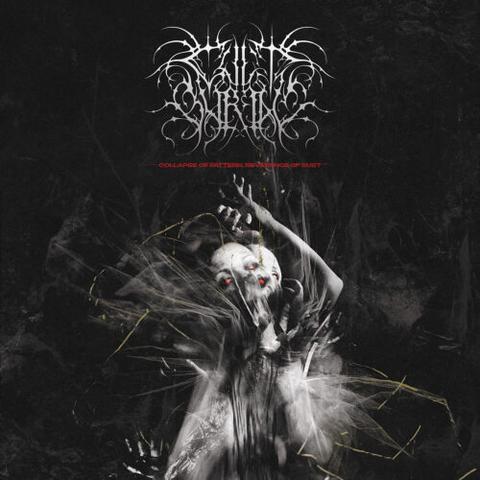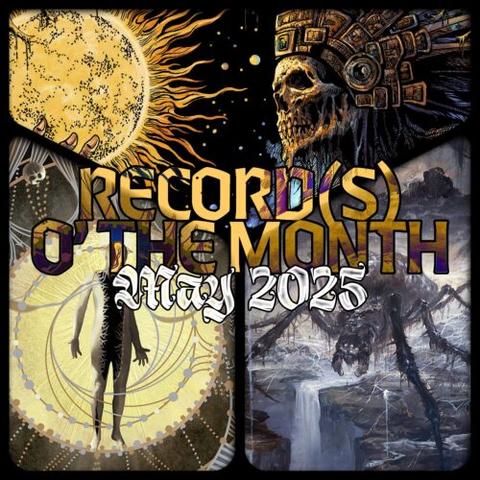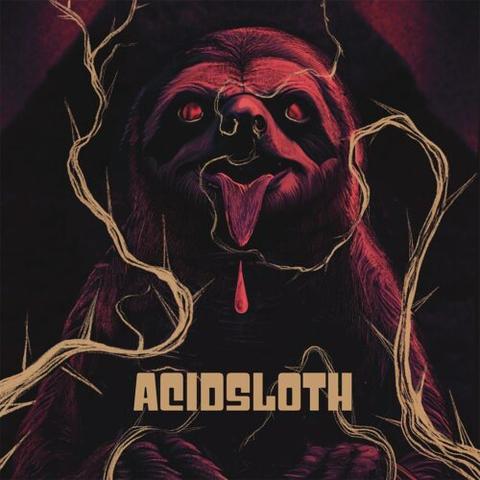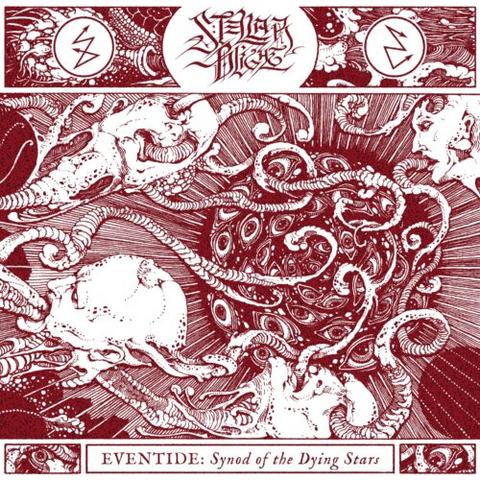Nuclear Dudes – Truth Paste Review
By Thus Spoke
Nuclear Dudes is one step closer to living up to their moniker as they are now officially more than one person.1 Joined by Brandon Nakamura (Doomsday 1999, ex-Teen Cthulu) on vocals, Sandrider’s Jon Weisnewski bounces back from the synthwave moment of Compression Crimes 1 to resume the usual trajectory of insanity. 2023’s Boss Blades—my personal introduction to this madness—was a disarmingly likeable collection of silly and serious sounds heavy and light. It was also surprisingly good. Though I’d partly forgotten this due to its brevity and my sieve-like brain, the band has such character, in name, in vibe, and artwork theme—that a commenter very sensibly pointed out is likely courtesy of Weisnewski’s small child and not his brother as I hilariously assumed—that I was instantly back in the room with Nuclear Dudes, ready for the next trip.
With a permanent2 vocalist alongside Weisnewski’s own contributions, Truth Paste is closer to powerviolence or grind than previous outings. But a vague resemblance to these genres is as close as it gets. The record is a breezy 23 minutes across 11 tracks (check one: very short runtimes), and there are more passages of outright beatdown, screaming, chaotic metallic insanity (check 2: silly heavy and intense). But it’s what’s going on within that runtime, and both during and between those especially heavy moments that matters. Nuclear Dudes don’t waste a second. Opening on a bizarre tribute to Guns ‘n Roses’ “Welcome to the Jungle”—which includes using that song’s literal intro as their own—the duo switch in a flash to an electro-grind(core), erratically accented by an array of eclectic sound effects, which is a recurrent style on the album. Approximately four and a half minutes in, it becomes clear that the preceding two tracks (“Napalm Life,” “Holiday Warfare”) functioned as a violent induction to themes that are to follow, as the title track ramps up to a pure hardcore breakdown to a woman crying “ohhhh myy gawwd it’s—”, and the ensuing chuggery forms the first ‘breather’ for the listener. That concludes the most normal segment on the record.
Truth Paste is weird, but it’s not incoherent. Despite the apparently revolving door of blooping, whirring keys and sound effects, and tempo changes that would give an F1 driver whiplash (“Napalm Life,” “Dirty 20,” “Death at Burning Man”), the whole thing flows remarkably well. Pretty much all songs transition seamlessly from the previous with overlapping samples, humming melodies, basslines, or keyboard something-or-other. Nuclear Dudes hit their peak at moments when the electronica-mixed-with-guitar transforms into synthwave by way of grind, making for ridiculously fun grooves (“Concussion Protocol,” “Space Juice,” “Pelvis Presley”) if not some very entertaining melodic excursions. Or perhaps the best parts are during those rapid-fire switches, where goofy meets brutal and jaw-smashing breakdowns are followed or preceded by floaty ethereality (“Truth Paste,” “Juggalos for Congress”).
As a novelty band that takes not taking itself seriously quite seriously, Nuclear Dudes are doing everything right. Track titles are dumb, the movie samples cheesy, and the harsh vox mix is a wry recollection of a bygone bedroom death/grind era. Nuclear Dudes own every last second of it, from the roboticised vocals (“Napalm Life,” “Concussion Protocol,” “Cyrus the Virus”) to the videogame battle sequence vibes of the keyboard gymnastics (“Dirty 20,” “Space Juice”). It’s almost annoying how un-annoying it is. And since you effectively experience it as one extended track, given those instant transitions, it becomes very easy to just vibe with it and not worry about which song you’re actually hearing at any moment, or whether what you just heard was genius or just silly. But in having superior flow to its predecessors, Truth Paste also possesses fewer true standout moments. There are no lows, it’s true, but there are also no epic peaks—no “Many Knifes,” for instance. Then again, this record is committing more strongly to the meth-head electro-grind genre than Boss Blades, and in that respect, kind of smashes it.
If you want to have a very entertaining 23 minutes and six seconds, Truth Paste should be your go-to. Nuclear Dudes has taken recruiting a vocalist, and evolving into their full hybrid mad-subgenre form in their stride, as they continue to half-sprint, half-dance ahead. This record is so tight, fun, and irritatingly self-aware that personal taste is practically irrelevant. I’m no longer going to express surprise that anything Nuclear Dudes creates will be fucking great.
Rating: Great
DR: 6 | Format Reviewed: 320 kbps mp3
Label: Self-Release
Website: Bandcamp
Releases Worldwide: September 5th, 2025
#2025 #40 #DeathMetal #EDM #ElectronicMetal #ExperimentalMetal #Grind #Grindcore #NuclearDudes #Powerviolence #Review #Reviews #Sandrider #SelfReleases #Sep25 #Synthwave #TeenCthulhu #TruthPaste #USMetal










